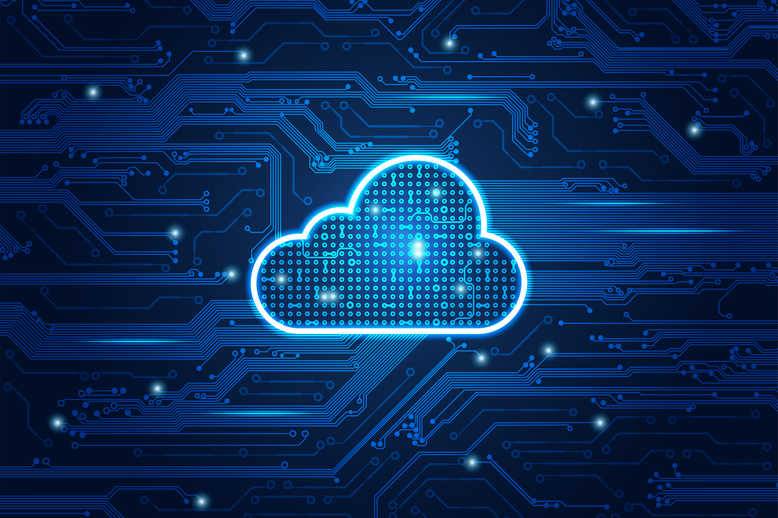


Cloud computing in healthcare often provides benefits to both patients and physicians . Reduced costs, enhanced privacy, and facilitating better patient care through collaboration and interoperability are just a few of the benefits of leveraging cloud systems for healthcare. Cloud computing in the medical field is a case where the business outcomes of healthcare providers and patient outcomes are largely aligned.
Cloud computing in the healthcare industry describes the practice of implementing remote servers accessed via the internet to store, manage and process healthcare-related data. This is in contrast to establishing an on-site data center with servers, or hosting the data on a personal computer. Cloud storage offers a flexible solution that allows healthcare professionals and hospitals to leverage a network of remotely accessible servers where they can store large volumes of data in a secure environment that is maintained by IT professionals. Since the introduction of the Electronic Medical Records (EMR) Mandate, healthcare organizations across the United States have adopted cloud-based healthcare solutions as a means of storing and protecting patient records. According to BCC research, the global healthcare cloud computing market is expected to hit $35 billion by 2022, with an annualized growth rate of 11.6%. Despite that, 69% of respondents in a 2018 survey indicated that the hospital they worked at did not have a plan for moving existing data centers to the cloud. So, what are the benefits of cloud computing in healthcare industries and how exactly is the cloud used in healthcare?

The federal mandate for electronic medical records which took effect on January 1st, 2014, was signed into law as part of the American Recovery and Reinvestment Act. The mandate requires hospitals and healthcare facilities to demonstrate meaningful use of electronic medical records for storing information about patient interactions. The goals of cloud computing in the medical field are to improve the quality, safety and efficiency of medical services, to better engage patients and family, improve the coordination of care, and to maintain patient privacy and security. Today, the majority of hospital and healthcare facilities have abandoned the practice of paper record-keeping when it comes to health records and are turning to cloud storage in healthcare. Electronic health records are stored in the cloud and updated electronically by physicians, nurses and other healthcare providers.
The implementation of cloud storage for electronic medical records has streamlined the process of collaborative patient care in America. Cloud storage makes it easier for doctors to collaboratively view or share a patient’s medical records. Historically, a patient likely had separate files of medical records at each doctor, specialist or hospital they visited.This made it very difficult for physicians to collaborate on the patient’s care. The widespread use of cloud storage in hospitals — specifically as it relates to electronic health records — make it easier for doctors to share information with each other, see the results of interactions between other physicians and the patient and provide care that wholly considers what the patient has experienced with other doctors in the past.
Establishing on-site storage requires an up-front investment in hardware and requires purchasing hard drives to store data on, and additional IT infrastructure to keep that data secure and accessible at all times. Providers of cloud-based healthcare solutions handle the administration, construction and maintenance of cloud data storage services, enabling healthcare providers to reduce their initial costs and focus efforts on the things they do best: caring for patients.
In the past, physicians who used filing cabinets to store reams of patient records faced significant risk of data theft or damage. Paper records are easily lost or stolen, and could be completely destroyed by a flood, fire or another natural disaster. The lack of security surrounding these documents was a significant risk to patient safety. Once the EMR mandate was established, healthcare providers could establish their own on-site data storage infrastructure, but again, that would require the retention of IT staff that are knowledgeable in data security to ensure that patient data was protected. As an alternative, healthcare providers have been able to outsource data storage and security to HIPAA-compliant cloud storage services. These services provide data storage of patient EMRs that complies with legally mandated requirements for data security and privacy. “The cloud” has helped to ensure that every healthcare provider can access a data storage solution that will adequately protect patient’s sensitive information .
The widespread adoption of cloud-based data storage solutions in healthcare has created new opportunities for “big data” applications to improve patient outcomes. In the past, doctors all over the United States kept their patient records in paper files. There was always a huge volume of potentially useful data in patient EMRs – data that could be used to predict when an epidemic might occur, to detect subtle correlations in patient illnesses that could reveal the causes of disease or to elucidate which treatment options were the most effective for a set of symptoms. With the introduction of cloud computing in hospitals and physician practices, all of the data that was previously inaccessible in filing cabinets can be searched through and analyzed using the most complex computer algorithms available. This will enable healthcare providers to detect and respond to public health threats that would previously have been invisible until much later in their life cycle.
Beyond the immediate economic advantages associated with choosing cloud storage over an in-house data storage solution, organizations benefit in the long-term from easier upgrades and reduced scaling costs. Providers of cloud storage solutions for healthcare use economies of scale to drive down data management costs for their customers – hospitals and healthcare facilities. Cloud computing in healthcare also offers additional flexibility through the typical pay-as-you-go cost structure associated with data storage. When healthcare facilities build their own data storage solutions, they must estimate how much capacity they need and invest their own money to increase that capacity as they begin to run out of storage space. With cloud-based solutions, a simple call to your service provider is all that’s needed to expand your data storage capacity to the levels you need. Cloud-based healthcare solutions are fully-scalable and capable of expanding in unison with your business.
Cloud-based EMRs can play a significant role in enhancing patient safety. For example, a mentally ill patient in California visited various hospital emergency rooms and walk-in clinics hundreds of times over the course of a year, each time submitting to tests and hoping to obtain prescriptions for medication. Thanks to the adoption of cloud EMR solutions, healthcare providers at each facility the patient visited could glean direct insight into interactions between the patient and physicians at other facilities. This protected the patient from being over-prescribed medications that could have caused her serious harm and saved the hospitals significant money, as they were able to avoid subjecting the patient to testing that she had recently conducted at other facilities.
In the same way that cloud computing will enable healthcare providers to leverage big data and analytics in administration of their facilities, medical researchers of the future will benefit significantly from the digitization of healthcare information through cloud-based data storage. In addition to the accumulation of massive data sets, the cloud allows medical researchers to leverage huge amounts of computing power that were previously inaccessible. As recently as 2005, a medical researcher who wanted to analyze a large data set would have to request time at one of the nation’s supercomputing centers, waiting weeks on a waiting list before getting their chance. With the cloud, researchers can leverage supercomputer-like analytical power on their own time, and at a fraction of the cost.

As we move into the next decade of development in digital health, interoperability between connected medical devices, medical technology, and the various systems and applications that store patient data will become an increasingly prominent issue. A growing number of product developers are building IoT-enabled devices for the healthcare industry, and without an accepted standard for communication and data transfer between devices, we’re missing out on many of the benefits of a connected healthcare environment. As developers work towards a world where wearable connected devices, mobile health applications and electronic health records can interface freely, facilitating rapid data transfer and analysis that drives patient care outcomes, cloud computing in healthcare will provide the primary platform for the storage and maintenance of all that data. Organizations that expand their cloud capabilities today will be able to effectively adapt to the changing landscape of healthcare in the coming years.
Now that we’ve answered the question, “How does cloud computing affect healthcare?” and established the advantages of cloud computing in hospitals and healthcare as it relates to electronic medical records, you may want to dive deeper into the benefits of cloud connected medical devices . Interested in working together? Check out our Partners page for more information or contact us directly.